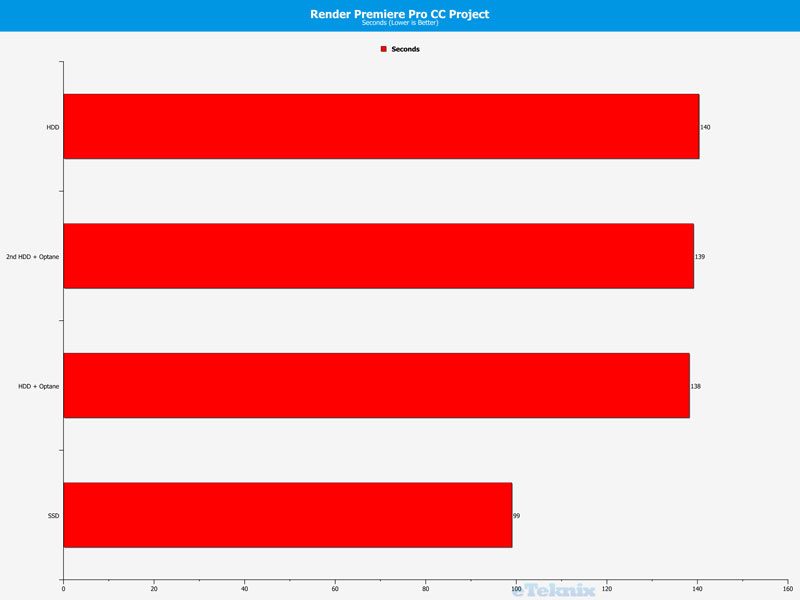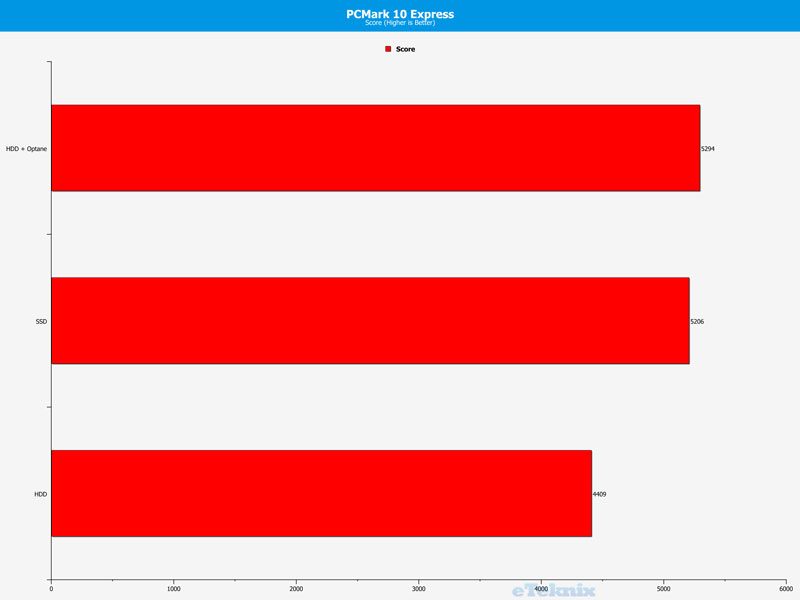Intel Optane – Harder, Better, Faster, Stronger?
Peter Donnell / 6 years ago
Performance
So let’s get to the testing! We set up a few tests, putting our Western Digital 250GB M.2 SSD through its paces. I should point out that it didn’t have to be M.2, as this drive is also available in a standard 2.5″ form factor also; it’s up to you what drive format you use. We also ran the same tests on our Western Digital Blue 2TB 5400 RPM HDD. Then we re-ran the same tests on the 2TB HDD with Intel Optane installed to see how close to the SSD performance would get.
Bootracer
It comes as no surprise that the SSD booted in 29 seconds. It did this first time and every time we tried it, like clockwork. Furthermore, the HDD came in at 107 seconds, which is painfully slow, but pretty much what we expected. With Optane though, the HDD matched the SSD performance after a few reboots. The first boot was just as slow as HDD, but again, once the files are seen to be used a lot, the cache takes over, and performance shot up fast.

Load Premiere Project
The same can be seen loading a larger Premiere project. This is where the larger files push the Optane to its limits a little more. SSD has a clear lead at 13 seconds, and for editing software, SSD will be king for a long time. However, the improvements of Optane on an HDD are clear to all. Interesting, even loading the profile from a second hard drive rather than the boot drive say the same performance improvement.

Render Premiere Project
Again, we see that using an SSD is still a significant advantage for the reading and writing of larger files. When it came to rendering out our project, the SSD from Western Digital was perfect for the job. Unfortunately, Optane didn’t show us any improvement over the stock HDD performance in this test, confirming what we knew about Optane and larger files. Of course, if you load those files a lot, and perhaps have a higher capacity Optane drive in the future, this will likely change.

Deus Ex Mankind Divided
Now, this is surprising, as the SSD loaded our Deus Ex save game in just 14 seconds. That’s a lot faster than the 31 seconds of the HDD. However, the Optane drive scored an impressive 12 seconds! The same 12 seconds was delivered with Optane installed to the boot drive, or one a second hard drive; this is very promising indeed!

Rise of the Tomb Raider
Once again, the HDD performance is much slower than that of the SSD. However, with Intel Optane, it’s nearly identical to the SSD loading times of 18 seconds. We recorded 19 seconds from the secondary drive, but that’s within our margin for error.

PCMark 10 Express
It seems that overall system performance does benefit from Optane too, most likely due to the very low latency cache. We scored 5294 with Optane + HDD, and 5206 with the SSD. Both fantastic scores, but remember that synthetic benchmarks like this one aren’t always reflective of real-world performance.




















